#michael jayston is my rochester
Explore tagged Tumblr posts
Text
yessss

The way she* is always on my mind.
*Jane Eyre (1973)
#i see 1973 jane eyre i reblog#michael jayston is my rochester#sorcha cusack is also a fine jane#jane eyre 1973#michael jayston#sorcha cusack#edward rochester
15 notes
·
View notes
Text
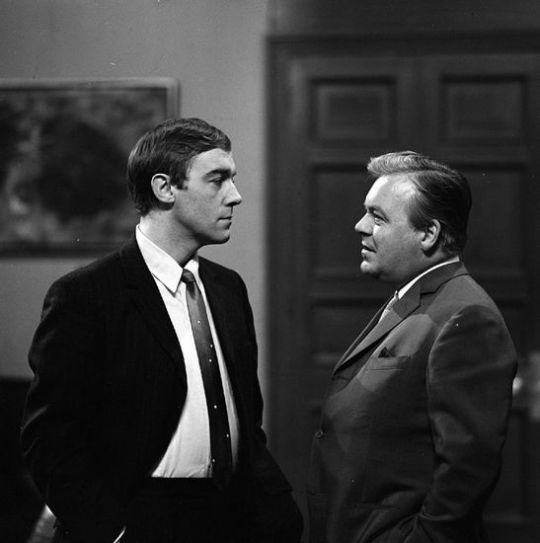
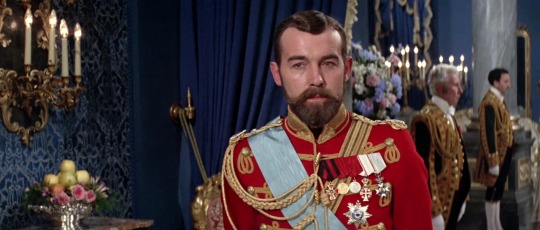


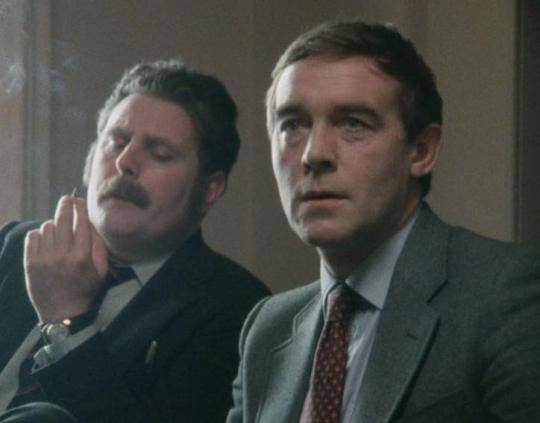
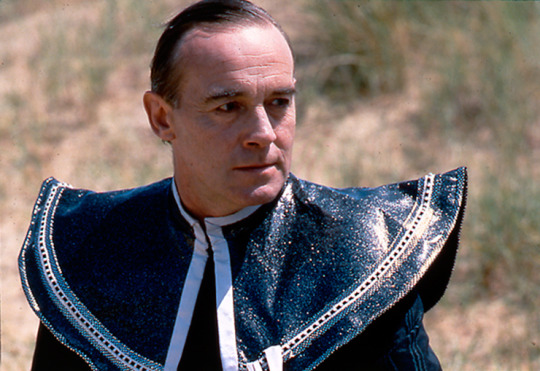
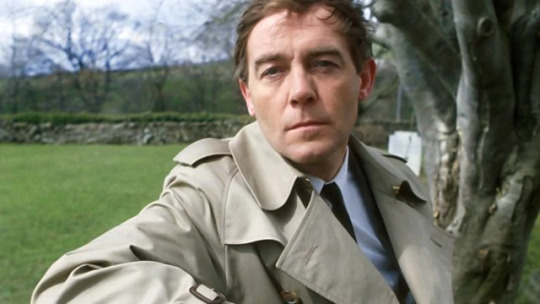
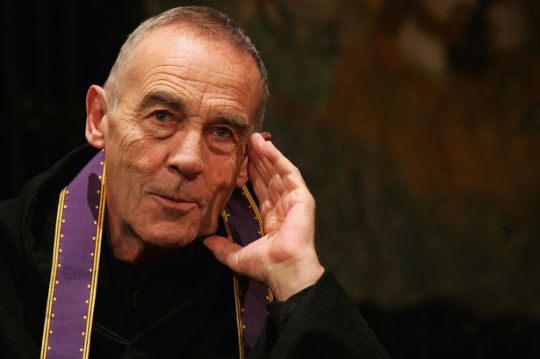
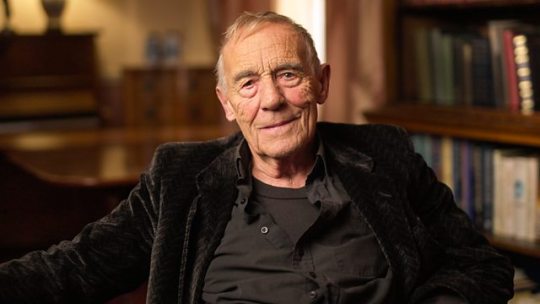
RIP Michael Jayston (29.10.1935 - 5.2.2024)
"Well, I played a lot of interesting people. I was Siegfried Sassoon in ‘Mad Jack’, and played Beethoven and Rochester in Jane Eyre amongst others. When I did Equus in 1976, a critic described my work on television as ‘odd bits of TV’, but these are no small parts for an actor."
#michael jayston#rip#death ment tw#character actors#lincoln dowling#the valeyard#doctor who#classic doctor who#the power game#callan#cromwell#nicholas and alexandra#ufo#thriller#the edwardians#the merchant of venice#jane eyre#the homecoming#craze#tales that witness madness#quiller#tinker tailor soldier spy#ladykillers#tales of the unexpected#jack the ripper#:( another icon of old tv gone#a peerless icy villain but just as adept as stiff backed official types or smarmy leerers. the valeyard got him dw immortality but there#was so much more to his career (not least the wonderful Lincoln Dowling in TPG). i always try and rec a lesser known role when an actor#passes but for once there's too many; his Ladykillers ep as real murderer Frederick Seddon is a beautifully realised study of a twisted and#confused amorality; his Edwardians ep as Henry Royce is genuinely very moving; and The Homecoming is nothing short of a masterpiece
100 notes
·
View notes
Text
So many great actors have played a character I dont know
So Ive never read Jane Eyre .....But Welcome to the Basement did an episode on the 43 adaptation,and I fell into a rabbit hole looking upactors who have played Rochester across the BILLION adaptations. Just going by English language adaptations weve had such varied actors play this one guy .The ones I fond notable are
Colin Clive (Yup Dr Frankenstein)
Orson Welles
Charlton Heston
Kevin Mccarthy (Of Invasion of the Body Snatchers fame )
Stanley Baker
Patrick Macnee
George C Scott
Michael Jayston
Timothy Dalton
William Hurt
Ciarian Hinds
Toby Stephens
Michael Fassbender
And just looking at that line up of actors ,I am so curious to hear the oppinion of someone who actually has knowledge of Jane Eyre .Cause I will be honest,Jane Eyre aint my expertiese,I can tell ya about multi adapted works like Dracula or Christmas Carol or Jungle Book but I know zilch about Jan Eyre ,just not in my wheelhouse,but I am a fan of good acting ,and these are damn good actors just not ones I would picture playing similar types . legit curious to hear the oppinion of Jane Eyre enjoyers to hear
For the record ,Scott,Dalton,Clive,Mccarthy and Fassbender intrigue me the most
1.DO any of these actors fit Rochester
2.Are any of them really miscast
3.of the adaptations you havent seen do any of these casting either intrigue you or make you tilt your head
4.Do you reccomend any of these to someone who is a newbie to this story
@princesssarisa @the-blue-fairie @themousefromfantasyland
@ariel-seagull-wings @theancientvaleofsoulmaking
@florals-cardigan @filmcityworld1 @amalthea9 @countesspetofi
12 notes
·
View notes
Text
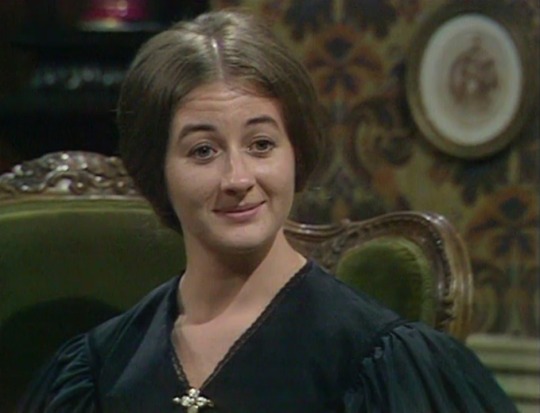
This Jane played by Sorcha Cusack from "Jane Eyre" 1973 version of is quite strange. What's something different about her compare to other Jane from different versions is that she smiles many times. When I first watched the 1973 version, I admit it was not easy to understand her because she looked too confident and quite a smug whereas in other versions of Jane they're usually look somber or quite serious. Upon replaying the show few times, I'm beginning to understand and even appreciate why this Jane does that habit.
It's in the novel and Mr. Rochester loves her smile.
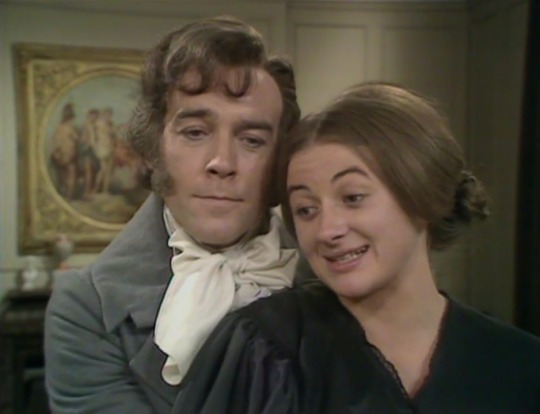
Surprise, surprise. It is mentioned in the novel that Jane does smile in some occasions and Mr. Rochester admits in few chapters that he loves to see her in that state. It's not much compare to 1973 version but it does something special about her and made Mr. Rochester fall in love with her.
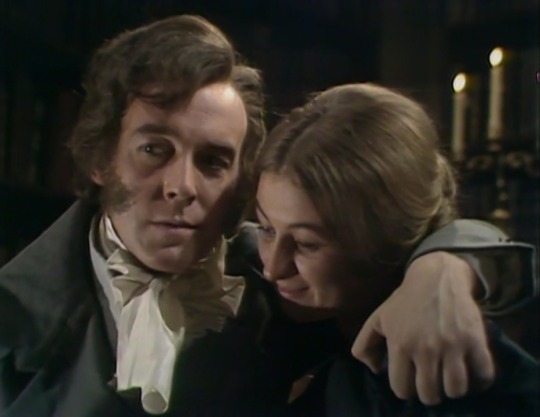
"Look wicked, Jane: as you know well how to look: coin one of your wild, shy, provoking smiles; tell me you hate me—tease me, vex me; do anything but move me: I would rather be incensed than saddened." (Chapter 25)
"There was much sense in your smile: it was very shrewd, and seemed to make light of your own abstraction." (Chapter 27)
"I believe you felt the existence of sympathy between you and your grim and cross master, Jane; for it was astonishing to see how quickly a certain pleasant ease tranquillised your manner: snarl as I would, you showed no surprise, fear, annoyance, or displeasure at my moroseness; you watched me, and now and then smiled at me with a simple yet sagacious grace I cannot describe." (Chapter 27)
Her smiles needed to make her and Mr. Rochester's chemistry and humor to work in the show.
The 1973 version has a reputation for being light-hearted and there are many funny moments there compare to other versions. In order to make that happen, the relationship between Jane and Mr. Rochester is portrayed as gleeful and grumpy pairing - Jane is seen perpetually amused and patient while Mr. Rochester is sarcastic and prone to be serious. Mr. Rochester, portrayed by Michael Jayston is often look grumpy and say whatever things he has on his mind then Jane choose to remain cool and say something funny to counter his thoughts. It actually works and it results to a great chemistry between them. Now can you to imagine what if Jane looked sad often in the show.
It has a tragic backstory - she learned it from Helen
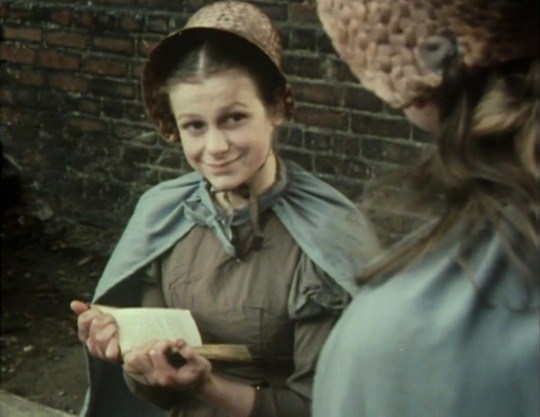
While there is humor in 1973, it doesn't forget that there at least few moments that are sad just like in the novel. One of them is the story of Helen. Helen is one of the few people in Lowood that Jane befriended. She taught Jane how to remain humble and forgiving after the latter experienced abuse in Gateshead Hall. In this version, Helen herself is often seen smiling and it says so in the novel.
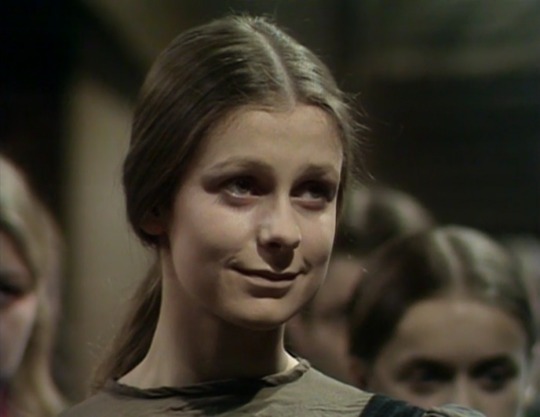
"What a smile! I remember it now, and I know that it was the effluence of fine intellect, of true courage; it lit up her marked lineaments, her thin face, her sunken grey eye, like a reflection from the aspect of an angel." (Chapter 7)
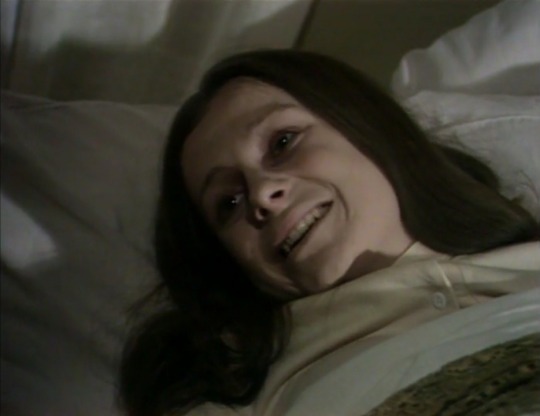
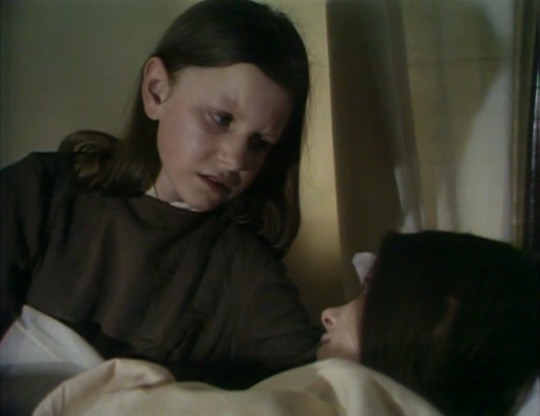
Even on her death, Helen chose to smile and told Jane who was seen sad and some sort of scaredy-cat not to worry about her. This could probably explain why adult Jane remain looking optimistic. We never know when Jane started to do it but whenever she does that she learned it from Helen.
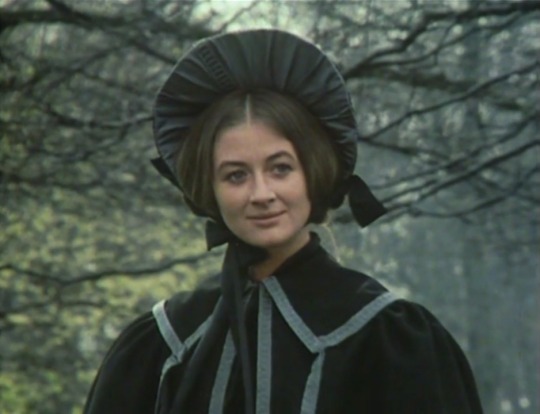
#jane eyre#charlotte bronte#jane eyre 1973#edward rochester#edward fairfax rochester#mr rochester#helen burns#sorcha cusack#michael jayston
67 notes
·
View notes
Text
What an interesting week. I was going through a Romanov period which proved a very short one because after watching Nicholas and Alexandra (1971) I found out that Michael Jayston had recently passed away.
I remember him from my absolute favourite BBC miniseries, Tinker Tailor Soldier Spy (1979). His Guillam left quite an impression on me and I remember thinking Benedict Cumberbatch coming short in the film version. (There are so many things I am not happy with in the film version but I don't think I should start). I know many people rave about Alec Guinness as Smiley but I have always thought Jayston's Guillam is meant to be the character the audience identifies with. Knows enough to know that something big is happening, but not enough to still be amused/annoyed at Smiley's seemingly random exploration. Jaded enough to feel put off by Tarr's general annoyingness but still cares enough to pick up on Tarr's genuine fear for his life. Excellently played by Jayston.
But then, upon further digging, I found out that he was also the Rochester in my favourite BBC adaptation of Jane Eyre in 1973. I watched it on TV so many years ago that I never knew who the actors were. Whenever I read Jane Eyre again since then his has always been the face I see for Rochester. Watching other Rochesters in the other adaptations has not dislodged that face. The 1973 version is the definitive Rochester for me. And yet, I never even suspected it's the same actor who played Guillam! I honestly cannot believe that 2 of the best TV characters I have loved for years were played by the same actor. What are the odds!
So when I came down with the flu on Monday I took the chance to spend my days off rewatching Jane Eyre (1973) and Tinker Tailor (1979). To nobody's surprise (my partner simply asked if he could put all my Romanov books back on the shelves!) I immediately got myself on a Jayston binge, devouring everything I could find online. Thanks to a small but very dedicated Jayston fan community, I discovered so many old gems but my favourite is an obscure little family drama, Flesh & Blood (1980). Only series 1 is available online and even though Jayston apparently didn't return for series 2 I still want to know what happened to the Brassingtons. I am so invested and I can't live not knowing what happened next! Oh well, for now I will just spend this unfulfilled energy screenshotting Jayston as Ross Brassington, adding to my growing Jayston folder.
RIP Michael Jayston. Thank you especially for your Peter Guillam, Mr Rochester, Tsar Nicholas II and Ross Brassington.
#michael jayston#nicholas and alexandra 1971#tinker tailor soldier spy#jane eyre 1973#flesh & blood 1980#RIP Michael Jayston#I feel like I am too late for something because he already died but I don't know late for what#those jayston fans who uploaded his works on youtube and that russian youtube thing thank you thank you thank you#I changed my avatar so it's pretty much an official transition to a new obsession
7 notes
·
View notes
Note
I have now seen three out of five episodes. I went into this knowing people thought Jane rather strange in this and that she smiled a lot, but like some posts I've seen about this, I do think it has an actual foundation. Sure, some of Rochester's comments about her being austere and smiling little come off strange, but I also like seeing how amused by and interested in Rochester she is and her genuine enjoyment of his company. I find almost all other adaptations a bit lacking in that regard. It feels like an essential element to their dynamic, which is why I think in this version they probably have the most chemistry after 2006! Michael Jayston as Rochester is fantastic! I don't necessarily like him better than my other favourite Rochesters (1983 and 2006), but I do like him very much, and there's a je ne sais quoi he brings to the role. Other casting is rather good too. I like that Mrs Fairfax is a bit less bright than other portrayals and emphasises why Jane and Rochester long for other company. Loved seeing her confusion at their exchanges. That's not usually included. Blanche Ingram is usually completely unlikable but I think here (though also in 1997) you also see a bit what makes her appealing. Yeah, I'm really enjoying it so far! It's rather faithful and an engaging watch. And though it's inaccurate, I really enjoyed that Jane immediately recognised it was Rochester dressed up as the fortune teller.
I rate 1973 very high because of its treatment of the childhood part of the book, yes, but also specially because of the Jane/Rochester dynamic. It makes or breaks an adaptation of Jane Eyre for me. It doesn't even have to be exactly the way it is in the novel, but I need to get a sense that they are on the same wavelength, and that that is a strange wavelength. And 1973 passes this test with flying colors.
Michael Jayston's Rochester is special to me, because it embraces so much the ridiculousness of the character, his theatrics, his impishness. I feel adaptations often feel the need to make him macho and dominant, and that's not what I get from the novel as his character. Toby Stephens has something of this, but not the level of commitment to the bit Jayston's has.
And yes to what you say about Mrs Fairfax and Blanche Ingram.
I'm so glad you are enjoying it :3
16 notes
·
View notes
Photo
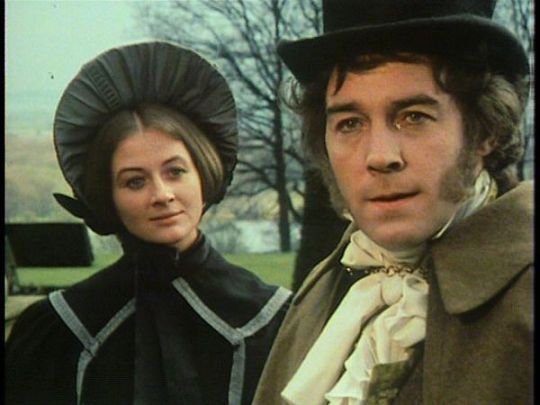

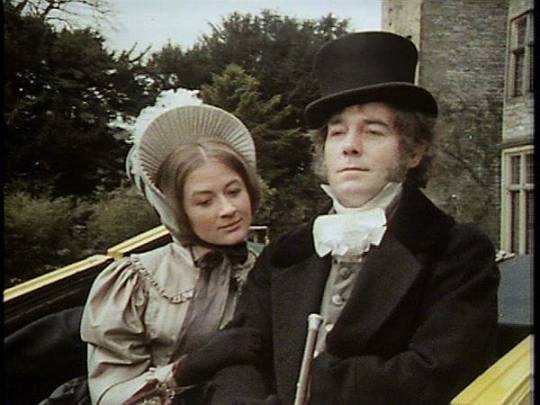
Jane Eyre (1973)
32 notes
·
View notes
Photo










For @cinemaocd - the happiest of birthdays, dear heart!
Here is a smorgasbord of 19th century SHIRTSLEEVES SWOONSTERS (in varying levels of historical accuracy) for you in celebration <3
Also here are all the past birthday gifsets because I’m very modest and humble: 2014 - double drink! // 2015 - fave swoonsters // 2016 - domestic swoonsters // 2017 - FUR! // 2018 - handsy Roger // 2019 - bicorn beauties
#jared harris#TWICE#colin firth#richard armitage#tom hardy#russell crowe#james d'arcy#ciaran hinds#gregory peck#michael jayston#ok so some of these are some of my favourite things to watch ever#and some of these boys are my favourite things to watch ever#and even though bb jay rochester is clearly wearing a tshirt under a standard 1970s shirt it is STILL my fave rochester and also jenny's#so he has to be here#also it's really hard to get a bit of francis crozier in shirtsleeves that doesn't rip your heart out#anyway this was super fun to do#and part of the joy obviously is anticipating jenny's reaction#my wee gifs#5 of these are in my 19th century swoonsters to bang into the 20th century#and more of them would be if they were fictional
126 notes
·
View notes
Text
Review: Jane Eyre, 1973, starring Michael Jayston and Sorcha Cusack
@thatscarletflycatcher suggested this adaptation to me, because she knows I love silly man Mr Rochester, my poor little meow, my court jester of a man. I wasn’t disappointed one whit- indeed, I was actually pleasantly surprised! I’m usually rather skeptical of older adaptations, but this one was a banger.
Let’s get into it!
- small Jane: I adored her so, so much. It felt accurate to her character, and I do believe she’s probably one of my top favorite Young Janes, right up there with Georgie Henley.
- Aunt Reed was, per usual, absolutely horrendous! I loved, as far as adapting choices go, that she was still rather pretty, as she’s described in the book, though perhaps not as young as intended.
- Something about John Reed just felt about right. In most adaptations, he’s just positively awful, but in this one, you can see his duality- the thinly veiled disrespect in his “charm” to his mother, and his blatant disrespect towards others, especially Jane. The wine chugging was a rather nice touch, considering he dies later for his undisciplined habits.
- Mr Brocklehurst was also awful, 10/10 for villainry, loved how he just hands Jane a pamphlet and goes “this tells of naughty naughty children who lie and the various ways that they gruesomely die, happy reading!” bonus points for the scene after the typhus epidemic starts at Lowood where the two gentlemen approach him and say, in a paraphrase, “we’ve noticed you’re a little unsympathetic cunt, so we decided to suggest for you to form a committee!”
- oh, Miss Temple is a dream here. She’s marvelous. I loved her little ways of displaying affection to her pupils, and how she’d make sure to soften any blows from the others.
- Now- Helen. By far, probably my favorite Helen. She was actually sweet and wise and kind. Sometimes I get from the other adaptations that Helen didn’t actually like Jane all that much, but this one took the time to establish “no, they’re friends, absolutely friends.”
- I have so much love for Sorcha Cusak as Jane Eyre. She reminds me a lot of Mia Wasikowska, as far as her sort of unconventional attractiveness, and her softness. I won’t say I exactly prefer her to Ruth Wilson, but she’s definitely in my top Janes. I do, however, like her proposal speech much more than Ruth’s. I love Ruth’s, to be sure, but Sorcha’s feels like steel below silk.
- I think 1973’s Adele is probably by far my favorite. She was genuinely so sweet and adorable. I can’t say much about her, because she didn’t get terribly much screen time.
- Mrs Fairfax: 10/10 would adopt her as an aunt
- Now- my favorite. Michael Jayston’s performance as Mr Rochester is quite unlike any other I’ve ever seen. His attractiveness isn’t quite in his face as much as on his face. His charisma and his facial posture is just charming, the way he quirks his lips at the corners when he’s teasing or verbally sparring with Jane. Completely unmatched! I find it hard to compare him to Toby Stephens because Toby was cast for a purpose, and it was to take “unconventionally attractive” and make it his bitch, and just completely ooze sexuality, regardless of being regarded as an “ugly man.” (get a pair of glasses, you idiots.) Michael Jayston, however, makes Rochester a silly yet passionate man, and hardly biting. I also love that they included him in drag- absolutely wonderful. And the eyeliner was a paid actor.
- The other half of the budget went into finding the biggest dog on earth to play Pilot, I love him.
- I’m not completely sure how I felt about Bertha. I do appreciate that they didn’t try to make her or overstate that she was “exotic” like 2006 did. I think they went the right route by making her seem pathetic- her catching a glimpse of herself in the mirror when she tears Jane’s veil, her wailing about how Rochester said he’d take her home, etc. I almost felt bad for her, but also another portion of the budget went into the audio quality of her laugh wafting throughout Thornfield.
- I almost forgot- I adored this Blanche. So biting! So beautiful! She’s actually dark headed and not just perpetuating the mean blonde queen bee role!
- My dear, dear St John- you are not 29, you are 30 going on 68. Seriously, I’ve never seen a man so confusing looking. He was handsome, but in like a slight uncanny way.
- I also loved Diana and Mary so much, so so pretty and sweet. 10/10, would collapse on their porch
- Honorable Hannah mention, i feel like she and Mrs fairfax would get on like a house on fire (oops, too soon?)
Well, there we have it! My review of 1973- I was absolutely and thoroughly charmed. Thank you, to my friend, for allowing me to commentate in her DMs, maybe one day I’ll post screenshots and snippets of it, or she can if she so pleases XD
20 notes
·
View notes
Text
@princesssarisa
Another thing i found interesting about Jane Eyre (and by consequence its fandom).
So before, watching the 1973 minisseries adaptation (starring Sorcha Cusack and Michael Jayston) and then following it by reading the novel, i had the atention called to your posts about how fans tend to either: idealize Jane as the perfect role model of quiet reason and stoicism, or mock her as the embodiment of the “I Can Change this Brooding Bad-Boy Man” trope.
When i finally camed to watch that minisseries and read the novel, i wondered if Charlotte Bronter uncounsciously predicted that kind of reactions, because the text itself shows characters presenting those points of views about Jane’s character, and then Jane herself questions then.
I’m talking about the two man most present in Jane’s life, who are presented as the candidates for her heart and hand in marriage: Rochester represents the side that believes Jane is there to change him into a better man, but Jane refuses that kind of pressure, imposes herself and says “No. I am not here to be a moral compass to fix you. I am my own person, with my own emotional baggage, who also is in proccess of self-discovery and has to change for myself. I fell in love with you for whom i knew you to be and wanted to have a quiet married life with you, only that. If you feel that you need to change, it is you whom must give the first step”.
And Mr St. John Rivers represents the side that puts Jane on a pedestal, saying that even the cold snow can’t be a botter for her, that she is strong enough to support the hardships of a missionary worker and even a marriage without love, motivated only by the common work.
And Jane also has to explain: “I am a human being. I get tired when i return from home after walking in the middle of a storm. I cry. I have fear of a premature death caused by the climate of a country where i know no one. I want to love, and be loved back, and be cared. I enjoy pleasures like painting and cooking. I can’t be strong all the time, and you can’t demand that i pretend to be like this”.
This is an element that made Jane a very relatable character, that presented discussions ahead of the time about how we would tend to view female characters in contemporary pop culture.
37 notes
·
View notes
Text
DAY 9: Favourite Rochester (actor)
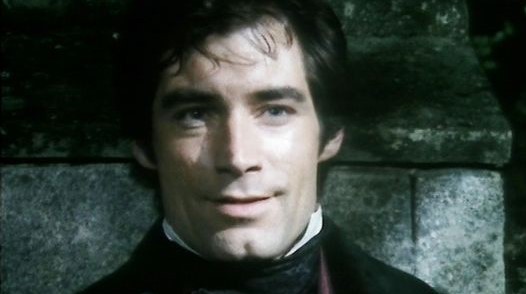
It’s harder for me to choose a favorite Rochester than it was a favorite Jane. I like Michael Jayston, Timothy Dalton and Toby Stephens the best - the other actors just don’t do it for me.
Dalton has a lot of presence as Rochester, he’s the one that more easily embodies the boisterous nature of the character - his volatile twists and turns. He brings a certain dimensionality with his portrayal that very much reminds me of the book, so kudos to him. (Plus, I love his accent).
He’s also good-looking, but not to the point it’s unbelievable that Jane doesn’t think he’s handsome.
The only issue I have with his portrayal it’s that he can get a bit too intense sometimes. Maybe that’s because of the overall theatrical style the 1983 adaptation has, but still.
Jayston is almost like a breath of fresh air in comparison. This Rochester is easily amused and not as broody as some of the others. He’s able to depict Rochester’s more playful qualities believably without coming off as odd or even creepy (let’s face it, some of the things the man says and does can be taken this way. He’s not exactly a regular, well-adjusted guy).
Stephens, on the other hand, harmonizes both the lighthearted and somber qualities of Rochester in a more noticeable way than Dalton. In theory, he should be my favorite for successfully conveying the character’s complexity in a way that both appeals to me and stays true to the book.
But there’s something to Dalton’s portrayal that captivates me more. Perhaps it’s the writing - which is faithful enough to the book - combined with the skillful acting that does it for me. It’s by no means a perfect depiction (is there even such a thing?), but it’s the one I ultimately enjoy the most.
4 notes
·
View notes
Text
I don't think 2006 cheats by making him lighthearted or fun, because he is in the book, but by making him look and feel younger and Jane to look and feel older. A late 20s guy behaving like Mr Rochester is a bit immature, sure, but when you are faced with the man being almost 40... that's just completely different. I also think this is sort of a minor gripe on the big scheme of things, and it goes more on the lines of "well, yeah, it's easier to make this forgivable if their difference in age was far smaller).
I'm not the biggest fan of 1973, but there is something about Michael Jayston where he is old enough but also fun and impish and it brings out the "whatever the hell is wrong with you, sir, because there is something terribly wrong with you, no doubt, it is very entertaining".
The brooding is sort of a general period drama disease. They also turned colonel "I will spill my guts out with little prompting" Brandon into a brooding man.... and John "I am a man, I claim the right of expressing my feelings" Thornton into a brooding man... Rochester did not stand a chance :P
speaking of je2006 rochester (honestly when am i not) i remember reading a comment or two somewhere talking about how toby's rochester was inaccurate because he was too easy-going and friendly and it perplexes me every time i think about it
now everyone is entitled to their own opinion ofc and i'm not here to tell anyone they're wrong and i'm right but it really confuses me because bro gets on my nerves like,, every other scene dhsjhshs i really start questioning whether or not we're even talking about the same adaptation
plus even though he is a pain in the ass i really disagree with the image of rochester as a 100000% stone-cold mean and aloof man,, in addition to that sliver of charisma he has we also get a few glimpses at a side of him that is more humorous and kind than his usual disposition throughout the book and i love that toby's performance captured and combined all sides of rochester's character instead of just giving us Some Constantly Rude Guy Who Has Absolutely Zero Qualities Which Could Make Him Appealing In Anyone's Eyes But People Love Him Anyway For Some Reason
20 notes
·
View notes
Note
You expressed some eagerness at hearing my thoughts when I watched Jane Eyre (1973). I just watched the first episode! The transitions were soooo weird, however beyond that the direction was rather good! Definitely better production values than 1983. Jane missed a bit of passion at first but I did end up liking her! Bit much voiceover maybe but I do like there is one. Miss Temple and Helen really were so good! Finally all the Helen scenes! And they didn't tone down the religion. Very strange for the episode to end in the middle of the meeting Rochester scene; still, I'm very excited to see Michael Jayston. I already like him as an actor.
Yes!
For a BBC 1970s-1980s production, they truly threw the house through the window, as we say in Spanish XD I think only Wuthering Heights 1978 got as much evident budget (and it has some actually artsy, inspired camera work? that one is kinda wild).
The whole tone of 73' is strangely... lighthearted? Jane goes through life like "I'M GOING ON AN ADVENTURE WEEE" which is a bit strange overall, but it pays off nicely when she gets to interact with Rochester, because he's trying all his bullshit so hard and she's like "lol, you are pathetic, I love you".
The voiceover thing is strange too, because it's hilariously overdone on episode 1 (like, the action stops so that Jane can narrate at us XD) but then it slowly goes away as the adaptation moves forward? I don't remember it ever being fully absent, but it is noticeably dropped in intensity.
I ADORE 73 Helen! I think the series does get what is The PointTM of the character and translates it well, and that's so satisfying considering how often that is not the case.
The ending of the episode is meant to be a cliffhanger, I think. If you are not familiar with the story, the mystery of the stranger would be a hook to tune in next time.
12 notes
·
View notes
Note
Just finished Jane Eyre (1973) and I cannot say otherwise than that I absolutely adored it! 2006 must always be my favourite; I first saw it when I was little and it left a lasting impression on me; but this definitely takes second place! I think this adaptation was very successful in compressing some things—as is almost unavoidable—but never giving the feeling like something is truly missing. The compression in the film adaptations always makes it feel like something is lacking, but here I really did feel all the essentials were there. 1983 has as much, if not more, but the acting in this version elevates it beyond that one. Episode four was just constantly spot on, and their chemistry was so, so good. I love them together. The St John section was very, very decent, and I'm so glad we got Jane teasing Rochester at the end! The one thing missing in this adaptation is perhaps a certain moody atmosphere, but it has so much to make up for that and I'll take good acting over good cinematography any day!
I'm sorry it took me so long to answer this ask, but in the interim since I got it: i) an assignment I had for the end of October was moved to last friday and I had to rush it ii) the washer broke down iii) the water purifier broke down iii) the dishwasher broke down. So I have been running after things and being too tired at night to answer asks.
I'm so glad you liked it! It truly is a hidden gem. While I think the St John part is better in 83, this Rochester brings so much more to the rest. I think Michael Jayston commits to the notion that yes, Rochester loves Jane and really truly means to make her happy and is ALSO being very stupid about it and hurting her deeply in the process too. It's very clear (and poignant) in that bit at the wedding where he grabs Jane's hand and holds it over his heart, like he fears something will happen and she will be taken away from him. The very gesture shows both, how much she means to him, but also the fear and guilt that are plaguing him because he knows he's doing something he shouldn't.
I get what you mean about the moody atmosphere. It IS a big deal, but ultimately we have so many adaptations now, that time has made it less of an issue for me. If we only had, say, 73 and 83, I'd be begging for some Gothic atmosphere. As is, having 97, 06 and 11, I'm like "we can have a happy go lucky Jane Eyre. As a treat."
#Jane Eyre#Jane Eyre 1973#cursemewithyourkiss#again I'm sorry#thank you so much for talking about this one to and with me#there's few people to do that around :D
10 notes
·
View notes
Text
Jane Eyre adaptations according to how funny they are:
1973: It's funny sometimes because it's probably the most lighthearted adaptation, and also because Michael Jayston and his guyliner are hilarious. I'm not 100% how much of it is voluntary and how much involuntary.
1983: whatever funny you might find here, is unintentional and rare. It has one joke and it falls flat.
1996: This is also a very serious adaptation, but as it leans in on tenderness and lowered drama, it's not as bad as it sounds.
1997: Involuntarily funny most of the time, my favorite laughs are: Jane returns from Gateshead right after she leaves, Grace Poole's "oh, that smells rotten" face, and the letter to Pilot exchange, which is actually an intentionally funny bit.
2006: Not funny overall, but the few jokes there are in it land well and make me laugh.
2011: Jane's "you are weird" reaction faces are hilarious, and specially the contrast in that scene where Rochester finds out Richard Mason is at Thornfield and he's doing ALL the drama. And that's mostly it.
18 notes
·
View notes
Photo








TV/Film versions of 19th Century Fictional Male Characters I Would Bang Into The 20th Century (In No Particular Order)
#4 Edward Fairfax Rochester [Jane Eyre, Charlotte Brontë] - Michael Jayston edition (BBC 1973)
#michael jayston#edward rochester#jane eyre#okay okay okay so if you had told me any time between 1987 and three months ago that my number one rochester would not be orson welles#I would have LAUGHED IN YOUR FACE which is not a thing I would do I was brought up to not be that impolite#I even say pardon me when I burp and there is no-one else around#but SWEET BABY CHEESES ON A WONKY BIKE I HAVE BEEN JAYSTONED#he is just such a fucking great rochester ok he is not physically a perfect match but who is that's an extensive never solved conversation#but he is sardonic and sassy and super emotional and vulnerable and everything fucking great about book!Rochester#and you know he is working with 1970s telly lighting and sets and polyester so that makes it even harder#so yeah I was a jayston fan before this but dear god this is the thing that made me go fucking nuts#also can you tell that dishevelled hair rochester is my favourite rochester#AUGH I am posting this from the floor where I am rolling about making whale noises#*19C#my wee gifs#ps I still love orson's rochester but this adaptation is so good everyone is great and it's super accurate#bonus shout out for geoffrey whitehead's fucking perf Rivers
67 notes
·
View notes